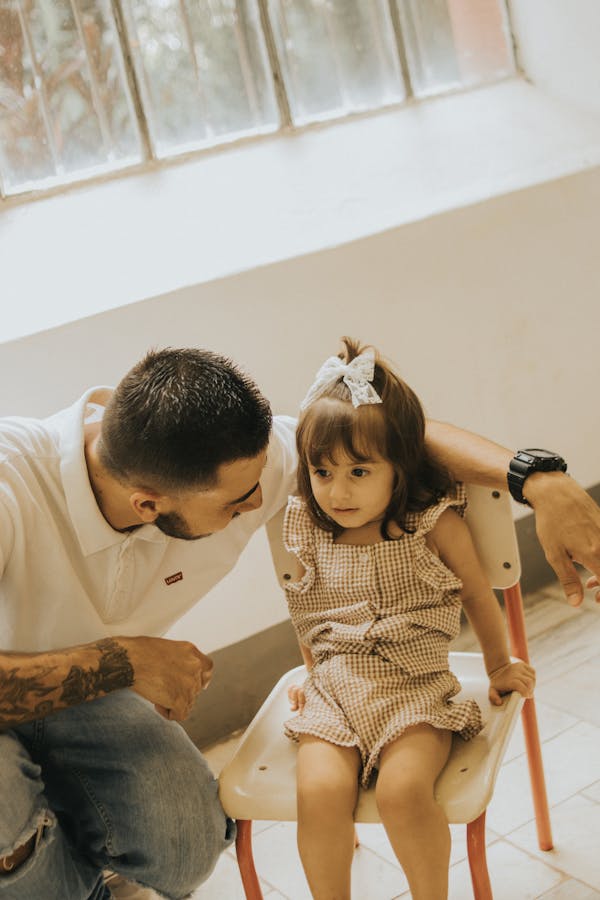How to Raise Emotionally Intelligent Kids

Unlocking the Power of Emotionally Intelligent Kids
Ever seen your kid freeze during a meltdown, unable to say what’s wrong? I’ve been there, scrambling when my son bawled over a lost toy, feeling helpless. Raising emotionally intelligent kids means helping them name and manage emotions—skills that spark lifelong success. This 2025 guide shares eight practical tips to nurture child empathy, emotional regulation, and parenting with feelings. Ready to dive in?
Struggling with parenting stress? Check out our guide on avoiding parental burnout.
What Is Emotional Intelligence, Anyway?
EI is the ability to recognize, understand, and manage emotions—both your own and others’. For kids, it’s about learning emotional regulation to handle big feelings like anger or sadness. I noticed my daughter’s meltdowns eased when I helped her name her emotions. Research from Psychology Today shows that spending quality time with kids during emotional moments boosts their EI. Emotionally intelligent kids are better equipped to navigate life’s ups and downs.
1. Model Emotional Awareness
Kids mirror what you do. I started saying, “I’m stressed, so I’m taking a deep breath,” out loud when I was frazzled. Guess what? My son started doing it too during his tantrums! Modeling emotional regulation shows kids how to handle feelings. HelpGuide.org notes that parents’ emotional habits shape kids’ EI.
How to Start: Name your emotions today, like “I’m thrilled about our movie night!”
2. Validate Their Feelings for Child Empathy
Dismissing feelings like “Don’t cry, it’s fine” can shut kids down. When my daughter was upset about a bad school day, I switched to, “That sounds really tough. Want to talk?” Validating emotions builds child empathy and trust. A Verywell Family article says acknowledging feelings helps emotionally intelligent kids feel understood.
How to Start: Say, “I see you’re sad. It’s okay to feel this way,” next time they’re upset.

3. Teach Emotional Vocabulary
Kids need words to express their emotions. I taught my son “frustrated” instead of just “mad,” and he started explaining his feelings better. A strong emotional vocabulary supports emotional regulation. Greater Good Science Center shows that kids with better emotional language resolve conflicts more calmly.
How to Start: Introduce a new feeling word, like “disappointed,” and use it in a chat.
4. Encourage Problem-Solving
Instead of jumping in to fix fights, I guide my kids to solutions. When they bickered over a toy, I asked, “How can you share this fairly?” They came up with a turn-taking plan! This fosters child empathy and independence. Verywell Family notes that problem-solving builds emotional resilience in emotionally intelligent kids.
How to Start: Ask, “What can we do to make this work?” during a conflict.
5. Practice Active Listening
Listening is magic for parenting with feelings. When my son rambled about his day, I put my phone down and really listened—his face lit up! Active listening (eye contact, nodding, asking questions) shows kids they’re valued. HelpGuide.org says this builds EI in emotionally intelligent kids.
How to Start: Ask, “What was the best part of your day?” without distractions.

Want stronger bonds with your kids? Discover tips for first-time parents!
6. Encourage Emotional Expression
Letting kids express big emotions is key. When my daughter cried over losing a race, I said, “It’s okay to feel upset—let’s talk about it.” This approach strengthens parenting with feelings. A Psychology Today study shows safe emotional expression boosts EI in emotionally intelligent kids.
How to Start: Tell your child, “All feelings are okay—let’s share what you’re feeling.”
7. Teach Impulse Control
Helping kids pause before acting is a game-changer. When my son wanted to grab a toy from his sister, I said, “Let’s count to three and think first.” It worked! Verywell Family suggests games like “Simon Says” to teach emotional regulation and build emotionally intelligent kids.
How to Start: Play a control game or practice a “pause and think” moment.

8. Create a Safe Space for Feelings
A supportive home lets kids express emotions freely. I set up a “calm corner” with pillows and books where my kids go when they’re upset—it’s their happy place! Greater Good Science Center highlights that safe spaces encourage emotional regulation in emotionally intelligent kids.
How to Start: Create a cozy spot for your child to relax and share feelings.
Table: Strategies for Raising Emotionally Intelligent Kids
| Strategy | Why It Works | How to Start |
|---|---|---|
| Model Emotional Awareness | Shapes kids’ emotional habits | Name your emotions out loud |
| Validate Feelings | Builds trust and empathy | Acknowledge their emotions |
| Teach Emotional Vocabulary | Improves emotional regulation | Introduce new feeling words |
| Create Safe Space | Encourages emotional expression | Set up a calm corner |
This table sums up key ways to nurture emotionally intelligent kids!
Quote to Inspire Your Journey
“Teach kids to feel deeply, and they’ll love bravely.” — Anonymous
This captures the essence of parenting with feelings!
Common Mistakes to Avoid When Raising Emotionally Intelligent Kids
I’ve made my share of parenting oopsies. Here’s what to watch out for:
- Dismissing Emotions: Saying “It’s not a big deal” minimizes their feelings.
- Overloading with Advice: Listen more than you solve—kids need to feel heard.
- Ignoring Your Own Feelings: Kids pick up on your stress, so model calm.
- Pushing Perfection: Focus on progress, not flawless emotions.
Want to try gentle discipline? Explore our guide on positive reinforcement parenting.
The Long-Term Benefits of Emotionally Intelligent Kids
Raising emotionally intelligent kids sets them up for life. My daughter’s now better at making friends because she understands others’ feelings. Studies show kids with high EI excel in school, build stronger relationships, and handle stress better (HelpGuide.org). They’re more empathetic, resilient, and ready to face the world. Parenting with feelings is like giving your kids emotional superpowers!
Why Parenting with Feelings Is Worth It
Fostering child empathy and emotional regulation isn’t always easy—trust me, I’ve had my messy parenting moments! But the payoff is huge. My son’s tantrums have dropped since he learned to name his emotions, and our bond is stronger than ever. A Psychology Today article emphasizes that quality time with kids during emotional moments builds lifelong EI. It’s an investment in their heart and future.
Conclusion: Your Journey to Raising Emotionally Intelligent Kids
Raising emotionally intelligent kids transforms how they connect, learn, and grow. With these eight tips—modeling awareness, validating feelings, teaching impulse control, and creating safe spaces—you’re ready to nurture empathetic, resilient kids in 2025. Which tip will you try first? Share in the comments! For more parenting wisdom, check out our guide to positive reinforcement parenting. Here’s to kids who feel deeply and shine brightly!
Sources
- HelpGuide.org. (n.d.). Raising emotionally intelligent children. HelpGuide.org. https://www.helpguide.org/family/parenting/raising-emotionally-intelligent-children.
- Verywell Family. (n.d.). 8 ways to help emotionally sensitive children. Verywell Family. https://www.parents.com/kids/development/behavioral/emotionally-sensitive-children/.
- Verywell Family. (n.d.). 8 ways to teach children impulse control. Verywell Family. https://www.parents.com/ways-to-teach-children-impulse-control-1095035.
- Psychology Today. (2025). Raising an emotionally intelligent child. A New GPS for Intimate Relationships Blog. https://www.psychologytoday.com/us/blog/a-new-gps-for-intimate-relationships/202505/raising-an-emotionally-intelligent-child.
- Greater Good Science Center. (2025). 3 ways to raise emotionally intelligent children. Social Instincts Blog. https://www.psychologytoday.com/us/blog/social-instincts/202503/3-ways-to-raise-emotionally-intelligent-children.








